If you purchase an independently reviewed item through our site, we earn an affiliate commission. Read our affiliate disclosure.
Apiculture or the practice of beekeeping has been around from the onset of human existence. Most people are drawn into beekeeping for various reasons – for the sweet honey or other honeybee product, to assist in pollination, as a hobby, for commercial purposes, and many other reasons. Irrespective of your reason for engaging in beekeeping, you mostly have your questions and concerns. The beginner and the professional alike both need some tips and nuggets that will help them become a better beekeeper. With that said, here are 50 beekeeping tips that, if followed and applied diligently, will make you a successful beekeeper.
Our Beekeeping Tips
1. Getting Started in Beekeeping
Beekeeping requires some knowledge, time, commitment, and practice. If any of this is lacking then forget about beekeeping. Bees are independent creatures by nature but that does not mean they should be neglected. You have to garner some knowledge on bee management and devote your time to the bees for them to stay in a healthy and comfortable environment. Some of the equipment required for beekeeping includes a hive, smoker, feeders, bee suit, and gloves.
I encourage you to peruse the content on BeeKeepClub which will take you through the very beginning and get you to a much more knowledgeable level. It is imperative to know as much as you can before getting into beekeeping.
2. Manage your Neighbours
The law does not oblige the beekeeper to tell his or her neighbours about their intention to begin beekeeping. However, it is wise to notify them since few people love surprises, especially when they are bee stings. One of the major advantages of bees is that they are docile in nature. They only become aggressive when provoked. All they need is nectar and pollen from flowers. Most people will have no problem when you tell them about this.
Since bees become aggressive when provoked, it is wise to conduct bee hive inspections when your neighbours are not around. Agree with your neighbours on a specific day of the week to check the hive. During such times, children and pets should be kept indoors so as to prevent bee attacks.
3. Join Local Beekeeping Associations
Beekeeping associations are available in almost all states globally. They provide a common ground where professionals and beginners alike come together to share their beekeeping knowledge. If you are serious about beekeeping then you should join one. Others refer to themselves as a beekeeping club. They organize regular meetings where the benefits, challenges, and experiences of beekeeping are discussed intensively. You will also get some beekeeping resources from these organizations such as books, loans, videos, and magazines. There are also some organizations that provide short courses in beekeeping. You will get accurate and up-to-date information on beekeeping when you enrol on these courses.
4. Get the Right Beekeeping Clothing
You need protective clothing during a hive inspection, feeding, hive relocation and honey harvesting. Bees react favorably to protective clothing that is smooth and light in color. Avoid dark and woolly clothing since bees react aggressively to such wear. The beekeeper’s hat should also be chosen wisely. Buy a hut that is firm and strong for maximum support to the veil. During hot months be sure to use ventilated veils. Dark-felt hats are not ideal. When it comes to the beekeeper’s veil, choose folding wire veils since they keep the shape and offer sufficient space between the face and the bees. The gloves should be strong, and pliable, and allows free movement of your fingers. You should also choose a pair of boots that cover your ankles well. Go for elastic-sided boots since they work best.
5. Understand your State Laws
Every beekeeper is required by law to maintain the bees. The laws and regulations might vary from state to state and therefore one has to be acquainted with laws that apply to their specific area. Generally, every beekeeper is required to keep the bees in a healthy and comfortable environment. The bees should also be kept in such a way that they do not attack your neighbors. Some states require the beekeeper to register as a beekeeper. Some charges may apply if you own a number of hives. You are also required to adhere to an apiary code of conduct that varies as well depending on your state.
6. Like Humans, Bees Need Water
The bees should be provided with a good supply of clean water in a partially shaded area. This should be near the hive for easy access. The beekeeper should never make the assumption that the bees will satisfy their water requirements on their own. Strong colonies on average require a liter of water during warm days. The water should be availed in the location before the bees are introduced to an area. Failure to do this will force the bees to seek other sources of water, and once they are accustomed to another location it will be extremely difficult to divert them. You should also provide floating material on the water so as to prevent the bees from drowning.
7. Not all Bee Colonies are Aggressive
Bees are territorial insects and they become aggressive only when they feel they have been attacked or invaded. It is therefore not true to make the assumption that all bee colonies are aggressive. Bees are hospitable in nature but various factors may force them to be aggressive. These include the skill level of the beekeeper, seasonal condition, quantity of smoke applied, the way the combs are handled, time of day, and type of clothing worn. If you realize that a colony is aggressive by nature then you have to replace the colony with a quiet strain of bees through requeening.
8. Best Source of Honeybees
If you are just starting out in beekeeping, then you may not know where to get the bees for your hive. You have two options when deciding where to get the bees: honeybee swarms or a nucleus colony. Nucleus colonies are the best to begin with since these are already established colonies though still small. Buy a nucleus colony in September or October and ensure you place your order in advance. A reputed beekeeper or bee equipment supplier sells nucleus bee colonies and therefore it should never be difficult to get a bee colony. Alternatively, you can collect honeybee swarms in the wild but this is quite risky. It requires some skill and experience to catch bee swarms.
9. Purchase of Used Beekeeping Equipment and Stocked Hives
One of the best ways to start off as a beekeeper is by buying hives with the bees and procuring used beekeeping equipment. However, you need to be careful when choosing who and where to buy these from. The vendor’s declaration form helps guarantee the safety of the used beekeeping equipment and stocked bee hives. Previously used equipment and ready colonies may harbor diseases and that is why you need some assurance from the seller. The written declaration will provide the information required about the health of the bees and the material sold. You can get blank vendor declaration forms by visiting your local apiary department offices.
10. Apiary Location
The bee hives should be located in areas where the bees can get an easy and continual supply of nectar and pollen. You can also grow bee-friendly plants within close proximity to where the hive is situated. During low seasons, bees should be fed with sugar syrup even though this is not clean enough for converting into honey. The hive should be located away from the wind and it should get the morning sun and shade in the afternoon. The hive should also be out of public view and in noisy places since most people fear bees. Bees also become aggressive when provoked and thus it is better to keep them out of reach.
11. Beekeeper’s Schedule
Summer is the best season to start your beekeeping journey. It is also the best time to grow your perennial flower garden. During spring the bee hives are set up and suppliers ship the beekeeping equipment and queens. The bees begin storing their stock of honey during summer. This is meant to sustain the colony during winter. You should provide some feed for the bees during winter so as to complement their stock. During spring monitor the food supply since food fluctuation is experienced during this time. Where necessary provide the bees with syrup. That is the only way to protect the bees from starving.
12. Information is Key to Successful Beekeeping
As a beekeeper, it is important to learn all about the bees. In this information age, there are literally dozens of learning materials about bees and beekeeping, especially here on BeeKeepClub. You should therefore have your own books detailing all that entail bees and beekeeping. The bees come first before anything else and therefore you need to learn how they survive so that you can manage the bees well. You can buy honeybee textbooks from your local bookstore or borrow one from local libraries. Some of the books recommended for the savvy beekeeper include The Bee: A Natural History by Noah Wilson-Rich. Another book is the one written by Thomas Seeley titled: Honeybee Democracy.
13. Choosing your Bee Hive Frames
Different models and designs of frames are available on the market. The hive designs are numerous as well. For the best convenience, choose a hive that has movable frames. Such frames ensure the bee combs stay secure and well-supported within the frame. Furthermore, the movable frame allows you to inspect the hive conveniently. You can swap frames easily between boxes or hives, and even use an extractor. Some of the bee hives that have movable frames are those in Langstroth hives. You can also check out other manufacturers as well and buy those with this kind of frame. Different manufacturers offer their own unique designs.
14. One Size Box for All is Ideal
It is common for conventional hives to use deep boxes for brood and shallow and medium boxes for honey supers. To make your beekeeping easy and hassle-free, choose one size box for everything. When you have one size of box for all that allows you to use one size of frame as well. You will find this to be helpful when the need to split colonies arise. It also comes in handy when making nucleus colonies. Standardizing the box for the brood and honey supers ease beekeeping. The only difference, in reality, is the content of the boxes. Medium boxes in particular are ideal since the queen thrives best in them. They are also easy to carry.
15. A Queen Excluder is not Necessary
There have been lots of concerns regarding the queen excluder. Most beekeepers use queen excluders as a matter of following the majority. But do you know that queen excluders in reality do not add value to your bee colony? In fact, when you exclude the queen you suppress the brood size and this in most cases leads to swarming. The bees do not require a queen excluder and neither should you. This will only be necessary for situations where you are using different sizes of boxes for the honey and the brood. But as explained earlier, use the same size of box for everything and this will eliminate the need to exclude the queen.
16. Change to Foundationless Hives
Foundations are essential in beekeeping since it helps straighten the bee combs. However, it is at times good to have foundationless frames. This allows the bees to build the combs according to their own need. The combs are normally built using glands located on the bee’s abdomens. The bees prefer building their own combs and therefore when given the freedom to do so they will be able to build more versatile combs – they tend to build smaller cells. To allow the bees to do so, use drawn-out frames or simply start with foundation then eventually move to foundationless frames as the bee colony grows.
17. Expect Swarming, it is Natural
For bees swarming is just but a part of their existence. A bee colony that has split into two will swarm leaving behind half of the colony. This happens so that the other half can find a new home. This is part of reproduction and it is a natural phenomenon in bees. Therefore do not be surprised when the bees swarm for whatever reason. However, to avoid losing half of the bee colony to swarming, watch out for signs of swarming and split the colonies into nucleus colonies. You can also keep smaller hives so as to avoid swarming. The best time to split colonies is early in the year or during spring.
18. Feed the Bees with Pollen
Bees consume pollen and it is a source of nutrients, protein, and carbs. You can use dry pollen substitutes to feed the bees. This can be placed in a feeder or bucket near the beehive. This should be protected from rain though. The bees will pack the pollen on their rear legs and take it to the hive. A large percentage of the pollen is collected by the bees mostly in the morning. As the day wears on other forages seek nectar instead. Nonetheless, pollen collection should be regulated so as to avoid collecting too much of it. The way to do it is to collect every other day for some time.
19. Accessibility over Space
It is at times quite tempting to set up your beehives away from residences, in areas where space is not limited. However, you can never manage well the bee colony if the hives are out of easy reach. The best way to manage the bees is by placing the hives within close proximity to where you reside. More so, keep the hives within a location where you can see them. Where possible, place them in your backyard so that you can see them every day. Bees require due care and maintenance and therefore the closer they are the better. You will also better manage pests and diseases when you get easy access to the bees.
20. Inspect your Hives Regularly
Bees are extremely responsive. An active hive can run out of space, requeen, and move out within 2 weeks. You should therefore inspect your hives regularly, preferably every 7 to 10 days. Inspection should be comprehensive and this includes: opening up the hive, checking space utilization and availability and the removal and inspection of each frame of brood. You should check out any signs of swarming and diseases. Allocate a sufficient amount of time for the inspection of each hive and do this regularly. In the beginning, you will take more time inspecting the hive but as you gain more experience you become more efficient.
21. Avoid Unnecessary Disturbances
When you are just starting out as a beekeeper, it is tempting to keep staring at the bees. You may be tempted to go around checking the hive or hives up to 10 times a day. This is not bad at all since everyone loves their bees. However, avoid this since frequently opening the hive exposes the bees to heat and wind which stresses the bees. Avoid this as much as possible, especially when the bees are trying to get established. You should also avoid too much insulation on the hive during winter. Hives that are wrapped tightly result in moisture buildup which kills the bees.
22. Ideal Number of Hives
There is no limit to the number of hives one should have if he or she is a professional. However, you should adhere to the state laws and regulations when establishing your apiaries. The beginner should start small and scale up over time. The ideal number for the beginner is 2 or 5 hives at the start. This number is easily manageable and will still provide an ideal number of bees to allow winter losses. You can increase this number once you gain confidence and experience. A well-established hive is capable of generating 50 to 100 pounds of surplus honey annually. This is sufficient for household and commercial purposes.
23. How to know a Healthy Colony
A strong population is required to build a good bee colony. The main role of the queen is to propagate the bee colony. It lays a full brood pattern and will skip a few cells. It covers from 8 to 10 frames. A healthy colony has more worker brood than drone brood and the bee population can go up to 75000 bees during the summer. This will be composed of the field bees that make up about 30,000 of the bee population. All the frames in two hive bodies and one or more frames in supers should be fully covered by the bees. A good colony is also docile when well managed and there is little tendency to swarm.
24. Honey Harvesting
A healthy colony can produce between 40 to 80 pounds of honey before winter depending on the availability of nectar. On average it produces 50 to 100 pounds of surplus honey every season which can be harvested. Excess honey should be harvested from the honey supers and the honey in brood boxes left to be winter food for the bees. Most bees die as a result of food shortages during winter. For the colony to survive all through summer, leave a minimum of 40 to 80 pounds of honey for every brood box and provide supplement food as well, sugar to water in a 2/1 ratio.
25. Beehive Placement
The beehive should be well positioned in order to provide a comfortable and healthy environment for the bees. It should be level from side to side but positioned such that it is slightly tilted. This will help prevent water from accumulating inside the hive. Bees dislike moist environments and therefore keep the hive dry. Moist environments are conducive to diseases. In addition to this, ensure the hive is well-ventilated through the upper side. The telescopic lid should be raised a little so as to reduce the humidity within the hive. You should also raise the hive at least 18 inches from the ground and it should have weed/rodent barriers.
26. New vs Used Bee Equipment
Given a choice between new or used bee equipment, buy new bee equipment. Most of the used bee equipment has been inherited by non-beekeeping families and therefore they might be acting unknowingly as agents of spreading viruses and diseases. Furthermore, it is recommended that frames and foundations are replaced after every 3 to 5 years. Overused bee hive equipment collects contaminants and chemicals which eventually poison the larvae and the young bees. The wax in particular absorbs these chemicals and harmful substances. The new equipment may cost more on initial purchase but in the long run, they give more benefits. Do not buy cheap used equipment and then later lose an entire bee colony.
27. Bee Placement in the Hive
The best way to place the bees from a package into the hive is by shaking off the bees gently into the hive. Any bees that remain should be left on the ground near the hive. That way they will find their own way into the bee hive. The queen is usually kept in a cage that is corked on both ends. The cork on the end that has candy should be removed. Once this is done, place the cage with its candy side facing upwards in-between two center frames of the bee hive. This will allow the bees to eat the candy within a few days thus releasing the queen into the hive.
28. Bee-Friendly Plants
Some of the spring honey plants that bees forage include maple trees, clovers, basswood trees, legumes, willow trees, tulip poplar trees, berry plants, sweet clovers, locust trees, trees, grasses, and sorghum. All these provide bees with nectar and or pollen. During summer and fall, bees forage plants such as soybeans, milkweed, cotton, goldenrod, smartweed, garden plants, sumac, asters, sunflowers, and morning glory. Most of these grow naturally whereas others should be planted within close proximity to the hives. These plants bloom at different times and therefore plant a combination of two or more varieties of the plants so as to ensure an uninterrupted supply of nectar and pollen to the bees. View more on bee-friendly plants.
29. How to Prevent Bee Diseases
Bees are highly susceptible to diseases. Any contaminated bee hive equipment can result in widespread disease among the brood. The situation is further aggravated by the fact that bees live as a colony and maintain continuous contact. This can spread disease within a short time. Some of the most common bee diseases include European Foulbrood, American Foulbrood, Nosema disease, and many others. The best way to prevent bee diseases is by buying new bee equipment. The frames and foundations should also be replaced every 3 to 5 years. You should also have enough hive tools so as to avoid tool sharing between bee yards. View more on bee diseases.
30. Protect Bees from Insecticide Drift
Bee colonies should be well protected from insecticide drift. If you use chemicals to treat parasites and pests that attack the bees, then ensure you familiarize yourself with best practices in chemical application and spraying. The bees should be confined for 3 days with a ventilated cloth when heavy insecticide spraying is in progress. Once the three days are over, allow the bees to fly. Bee hives should be located in areas that are away from frequently sprayed fields. If these areas are unavoidable then the hives should never be in a downwind location. Put them in an upward location instead.
31. Find a Mentor
Beekeeping is just like any other venture you can think of. It takes time, effort, dedication, and experience to be a successful beekeeper. As a matter of fact, this old adage still remains true, “if you want to learn about beekeeping speak to a beekeeper that is in the second or third year in beekeeping”. Every beekeeper is at the peak of his or her career in the second and third year and by this time they have built enough confidence to share their knowledge about the venture. If you are looking for a mentor then look for a beekeeper who has engaged in beekeeping for many years within your area. Find one who can freely share about the mistakes they have made and how they managed to overcome them. It’s good to have a local, personalized experience.
32. Not all Plants are Good for Bees
There are so many varieties of plants that produce nectar and pollen in nature. One might think that every kind of flower you see is good for the bees. Contrarily, some plants are toxic and might even wipe out an entire colony under some conditions. Furthermore, if you are based in the US then it is important to note the fact that honeybees did not evolve in America. Therefore, they may not be able to recognize poisonous plants. In addition to this, not all plant pollens are nutritionally sufficient for the honeybees. Others may even be insufficient for winter. View more on non bee-friendly plants.
33. Do not be too Harsh on Yourself when you Lose a Colony
Bees are generally subject to nature that plays no favorites. Even in the absence of human intervention, bees will still be subjected to other elements of nature that can wipe out colonies, for instance: viruses, parasites, overpopulated colonies, or diseases. All these will still lead to the loss of entire colonies. On average, a bee colony will produce at least one swarm and that results in double the number of the colony. The survival rate of such a colony is minimal and only the original number will manage to survive through the following spring. Statistically speaking half the colonies in a stable population survives every year. Therefore do not punish yourself when you lose a colony(ies).
34. Bees can Bear Certain Chemicals
Many have raised concerns as to whether it is wise or not to use organic acids and essential oils to treat bee diseases and pests such as the varroa mite among others. Well, bees have been found to have extraordinary capabilities to bear with certain chemicals. They can detoxify chemicals and other natural toxins found in nectar and pollen. As a matter of fact, propolis is an odorous resin exuded by plants and is one of the products used by bees to kill parasites and microorganisms. Therefore these organic chemicals have no effect on the bees. Nonetheless, our main concern should be the man-made chemicals and pollutants – especially the synthetic miticides used by beekeepers. These are deadly to the bees. Of course, certain beekeepers would prefer a treatment-free approach.
35. The Type of Hive Box does not Matter Much
The type of beehive or box used for keeping the bees does not really much. Bees can thrive in almost any type of hive for as long as it is healthy and comfortable. Therefore, it will never matter if you are using a traditional top bar hive or a sophisticated modern beehive. Another factor to note is that the color of the equipment used also is not a big deal to bees. Furthermore, the style of equipment is just but a reflection of the beekeeper’s preference and is by no means an indication of successful beekeeping. Choose whichever hive type that pleases you and meets your needs.
36. Boost Bee Immunity with Pollen Provision
Bees are by nature independent and self-sustaining creatures. Their body’s immune response is quite outstanding and they are capable of resisting pathogens and some common viruses. However, bee immunity largely depends on the availability of protein. A recent research done by Tucson Bee Lab revealed that bees that get sufficient amounts of pollen have greater immune responses. They can overcome diseases such as Deformed Wing Virus, a common disease in bees. Healthy bees are not only able to overcome diseases but they are also capable of defending the brood from invasion. Therefore ensure the bees get access to nutritious pollen.
37. Treat Bees when Necessary
There has been a lot of buzz with some beekeepers saying “treatment-free” bee management is the best way to go, as they view the treatment of diseases and parasites as going against nature. While this may work for some, it may not work for others. Every hive is different and avoiding essential treatment should never be an excuse to leave your bees to die, even if the method works at times.
We as humans take medicine when we become ill and so it is that sometimes the animals and insects in our care need medicinal help in order to get better. Good management of bees is all about keeping the bee colony alive and healthy, and sometimes going treatment-free cannot achieve this. Furthermore, beehives left to fight against diseases and parasites on their own are not only prone to death but there is a high risk they will infect neighboring hives and bee colonies.
38. Best Habitat for Bees
The honeybee originated from the tropics and thus thrives best in sunny and warm environments. Cold temperatures reduce the lifespan of bees and they become susceptible to diseases. That explains why most beekeepers lose bee colonies during winter. The bees need honey in order to generate the heat required for warming themselves. The honey accumulated by the bees in preparation for winter is used as stored fuel for the cold months. To help the bees thrive, ensure the hive gets sufficient infiltration of sunlight. However, it should not exceed the brood nest’s required temperature. Some diseases or parasites such as the varroa, chalkboard, tracheal mites, and small hive beetle are least common in hives with better exposure to the sun.
39. Parasite Resistant Stock of Bees
Recent studies have led to the introduction of bee stocks that are capable of resisting parasites. These latest colonies are capable of resisting parasites such as the varroa mite and other viruses. These parasite-resistant bees have marked the beginning of cost-effective and hardy stocks. Most small-scale beekeepers can keep this strain of bees at a low cost since they require no treatments. You can also use some natural treatments in addition to keeping these resistant bees. More so, it is prudent to keep a constant check on the bees and offer a helping hand if they cannot keep off the mites on their own.
40. You do not Have to Know Everything
Most beekeepers especially the novice think that the professional beekeeper knows everything. Truth be told, no one alive knows everything even if it is their area of specialization. You should therefore venture into beekeeping with an open mind. In fact, you can ask any professional beekeeper about some aspects of apiculture and you will be surprised to learn that they have never heard of it. Even the master beekeeper never stops learning because every day and every season comes with its share of challenges. Even diseases and parasites become resistant to chemicals. If you stop learning you will not be in a position to counter new challenges.
41. More is Better
Successful beekeeping requires strong colonies. It is always better to have a number of hives instead of just one since this helps better manage the bee colonies. When you have several hives you expand your options. You can easily transfer pollen, brood, or honey from one hive to the other when the need arises. It is also a good way of strengthening weaker bee colonies. Furthermore, two or more hives make it easier to requeen hives that are queenless. You can use the healthy hive to supplement your eggless or queenless hive. The extra hives act as a backup for each other when the need arises to boost a hive.
42. Get your Bee Equipment Early
As the old adage goes, “The early bird catches the worm”. This holds when it comes to the purchase of beekeeping equipment. It is wise to get your beekeeping equipment early before bee arrival. Those that wait until the last minute will experience shortages as the spring season graduates. You should also expect some delays in shipping since most companies take 2 to 3 weeks to deliver. This can bring a lot of problems if the bees arrive and their home is not yet set up. Always have your equipment ready if possible at least a month before the bees arrive.
43. Know your Hive Options
It is good to know the options you have when it comes to hive styles available in the market. If you are a beginner beekeeper then it is wise that you carry out your research in advance. You can choose a 10-frame or 8-frame Langstroth hive. Alternatively, you can go for a Top Bar hive. Each of these has its pros and drawbacks and thus you need to know what you buying before you commit your finances. One of the best ways to ensure you get an ideal style is by connecting with local beekeepers within your area. Once you have first-hand experience with the types of hives available, you can try out the style of your choice.
44. Choose Quality over Quantity
For as much as one hive is better than one, it is much better to go for quality over quantity. A beekeeper that has a few well-maintained hives with healthy bees is much better than one with many hives but with poorly-maintained bees. The beekeeper that can devote enough time to the management of his few hives can be deemed successful unlike one where many hives are in poor condition. Always choose quality over quantity. However, if you have the capacity and capability of handling many hives never hesitate to have many of them. Do this as long as the bees are well-managed and healthy.
45. Beekeeping is not as Clean as you Imagine
Most people never understand the amount of effort it takes to get the clean honey they see in bottles. It is extremely hard to even think that beekeeping requires some hard work and can at times involve handling dirt. Well, the summer months involve plenty of dirt and sweat. The boxes filled with honey are very heavy and thus require some physical effort. Luckily, various methods of handling honey have been developed to ease this. For instance, the use of ATVs has gained popularity with many beekeepers globally. The use of trucks makes it easy to transport honey from the farm to storage areas.
46. We all Fail Sometimes
Someone once said, if you have not failed in anything then you have never tried something new. This holds true for beekeepers. Every beekeeper, even the professionals experience some failure at one point. Those who are sincere enough will tell you they have failed at one time. If you are starting out in beekeeping then you may have some high expectations. Never think failure is impossible even when everything is done right. It is possible to do everything in the right way and still lose an entire colony. Be willing to accept loss, draw some lessons from it and move on. Do not dwell on mistakes and most importantly never give up the beekeeping.
47. Choose What Works for You
Beekeeping is one of those industries where advice is limitless and given for free. You should learn to listen to all but decide and work with what works best for you. Most importantly, seek advice from those within your region who are professionals in the field. It is also better to begin small and grow drastically since that is the only sure way of gaining experience in the field. As a matter of fact, you will realize with time that you have knowingly or unknowingly developed your own management plan that works best with your schedule, budget, location, and climate.
48. Do not be in too much Hurry for the Honey
Most beekeepers, especially those in the venture for the first time expect to get surplus honey in their first year. Well, do not rush to get the honey even if you committed a lot of your time and effort to the project. The first year is not only tough for you as a beginner but it is also tough for the new bee colony. If you consume all the surplus honey during this time, you risk losing your entire bee colony to starvation since nectar may not be sufficient to replace it. However, this will depend on the climate and conditions of the region you are based.
49. An Empire is not Built in a Day
To the novice, the dozens of information available about beekeeping may seem overwhelming. It is even more confusing when you get several contradicting pieces of information on the same matter. Fortunately, it is important to remember the old adage that goes, “Rome was not built in a day”. Once you have entered the world of beekeeping, remember this is one of the most opinionated industries. Almost anyone is ready to give his or her view about it. Never be deceived, it takes a lifetime to learn to be a beekeeper. Be willing to commit all it takes to succeed and you will succeed in beekeeping. Start small and grow your stock with time.
50. The True Measure of Successful Beekeeping
Beekeeping has its fair share of challenges. It also offers tremendous dividends to the beekeeper that is patient and resilient in the venture. Every beekeeper will experience highs and lows. During the abundant seasons, almost anyone can succeed in beekeeping. However, the true measure of successful beekeeping does lie in these seasons of plenty. What truly defines a successful beekeeper is his or her ability to overcome even the most challenging seasons like winter. A well-maintained stock and proper husbandry define your success in beekeeping. Healthy bees all through the year prove you are successful. It is not all about the equipment, philosophy, or treatments employed.
Conclusion
To be successful in beekeeping, diligently follow these beekeeping tips and nuggets and you will not only get a healthy and productive bee colony but will also get a sense of fulfilment for doing the right thing.
What are your thoughts on these beekeeping tips? Leave a comment below and let us know.
 BeeKeepClub Resources and Guides for Beekeepers
BeeKeepClub Resources and Guides for Beekeepers
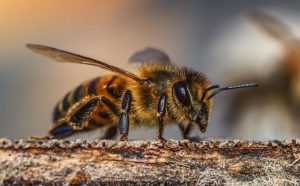


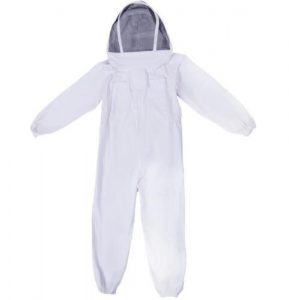

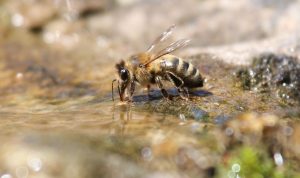
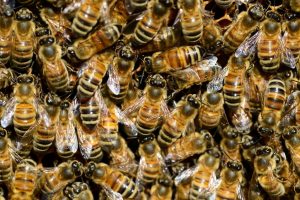
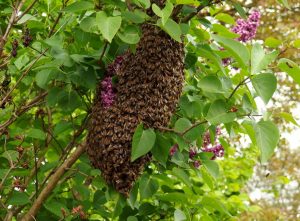
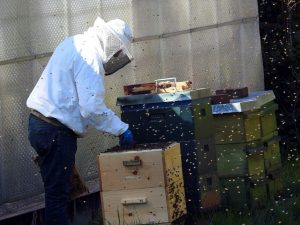
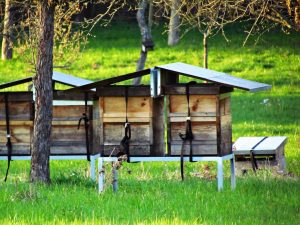
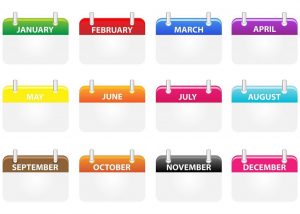

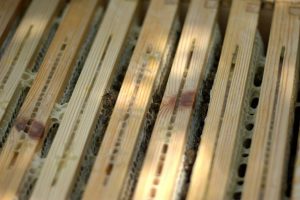
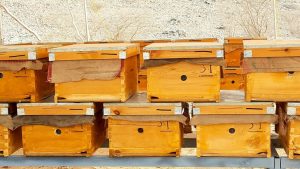
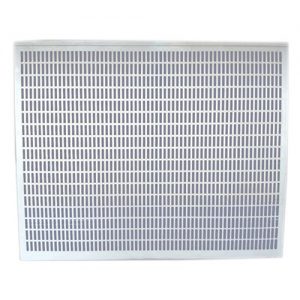
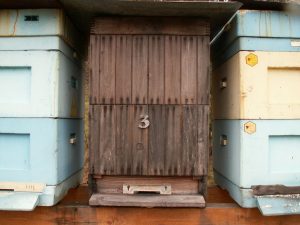
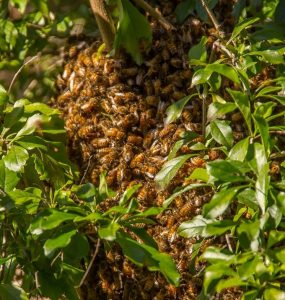
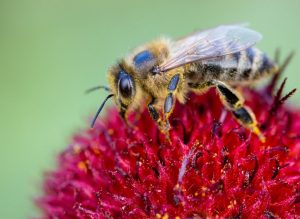
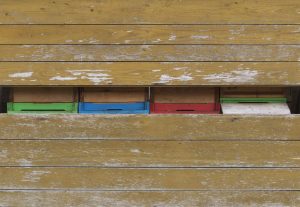
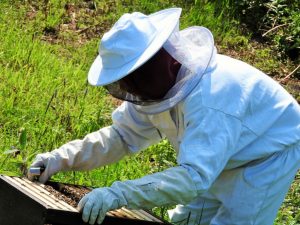
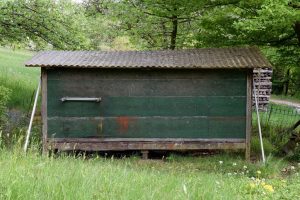
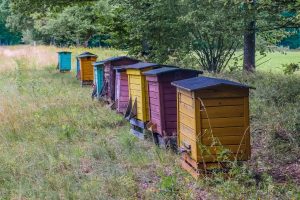
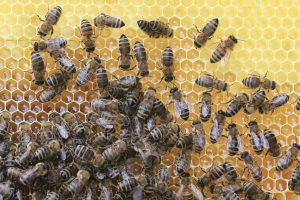
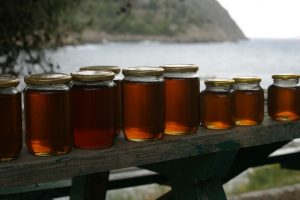
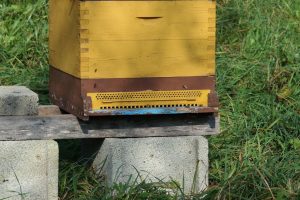
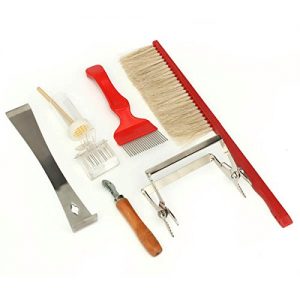
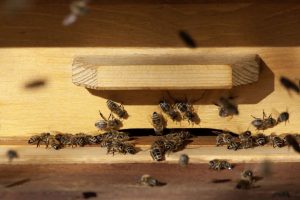
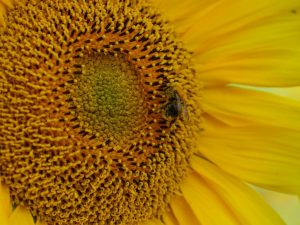
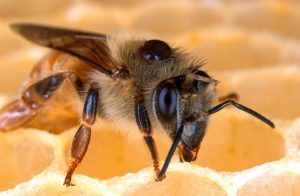


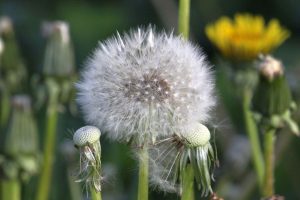


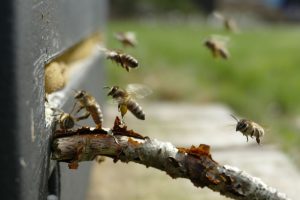

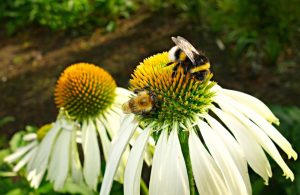
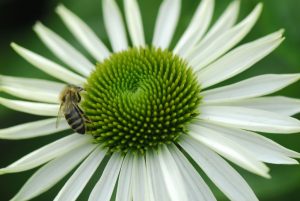
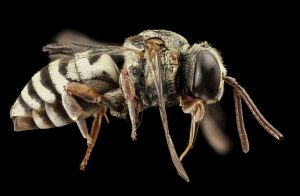

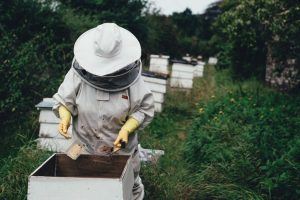
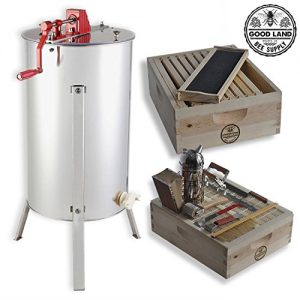
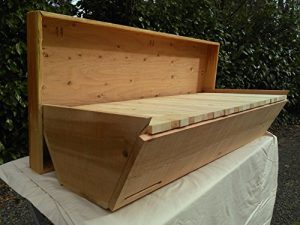
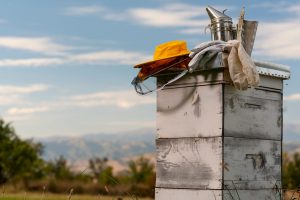
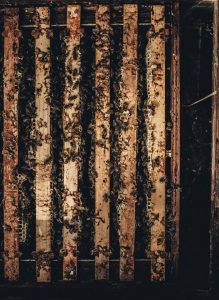


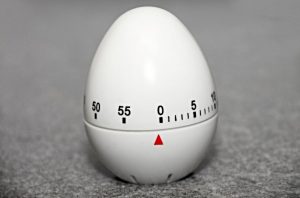
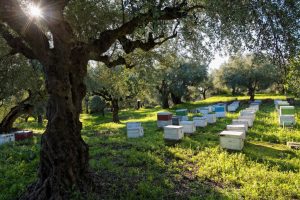
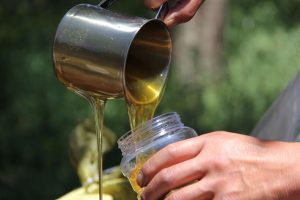
Shame! Bees are defensive by nature, stinging is the only defense they have. If people want to keep nice cuddly bugs keep worms or butterflies. Trying to keep breeding weak bees only weakens the overall genetics. If someone came to your home tore rooms apart, fiddling with your babies and stealing your only food source you would fight back too. Let bee be bees.
It would be interesting to read about the ways of selling honey. How to sell correctly? How to increase the base of potential future honey buyers?
How to resist cheap and low-quality honey?
Hi, that is a great idea, thank you.
For example, in our area, acacia and linden honey are highly valued, but there are few of them. Very little. At the same time, we get a lot of herbal honey from the apiary, but it is more difficult to sell it. How to be?
It would also seem interesting to talk about the packaging, labeling, labeling and transportation of honey. For beginners in beekeeping, this is always a challenge.
Thank you very much for your work for the beekeepers!
These are all good points. I will definitely write an article about them.
Great info
Thank you.
It covers essential aspects of beekeeping, from the importance of acquiring knowledge and proper equipment to managing relationships with neighbors and understanding local laws. It also emphasizes the significance of water supply, colony behavior, and hive location. These 50 beekeeping tips provide a comprehensive guide to successful and responsible beekeeping practices. 🐝🍯🌻
This comprehensive guide to beekeeping offers valuable insights for beginners and experienced beekeepers alike. It emphasizes the importance of knowledge, proper equipment, and community involvement in successful beekeeping. The tips cover various aspects, from hive management to colony health and swarm prevention. Accessibility to hives is highlighted as a practical consideration. Overall, it’s a helpful resource for those interested in beekeeping. Have you considered starting your own beehive?
These 50 beekeeping tips provide valuable insights for both beginners and experienced beekeepers. They stress the importance of knowledge, dedication, and proper equipment in successful beekeeping. Notifying neighbors and joining local beekeeping associations promote good relationships and shared knowledge. Choosing the right protective clothing and understanding state laws ensure safety and compliance. Providing bees with water, recognizing colony temperament, and sourcing honeybees wisely are essential steps. Additionally, maintaining used equipment, selecting an optimal apiary location, and following a beekeeper’s schedule contribute to a thriving beekeeping venture. Finally, continuous learning and adaptable hive designs further enhance beekeeping success.